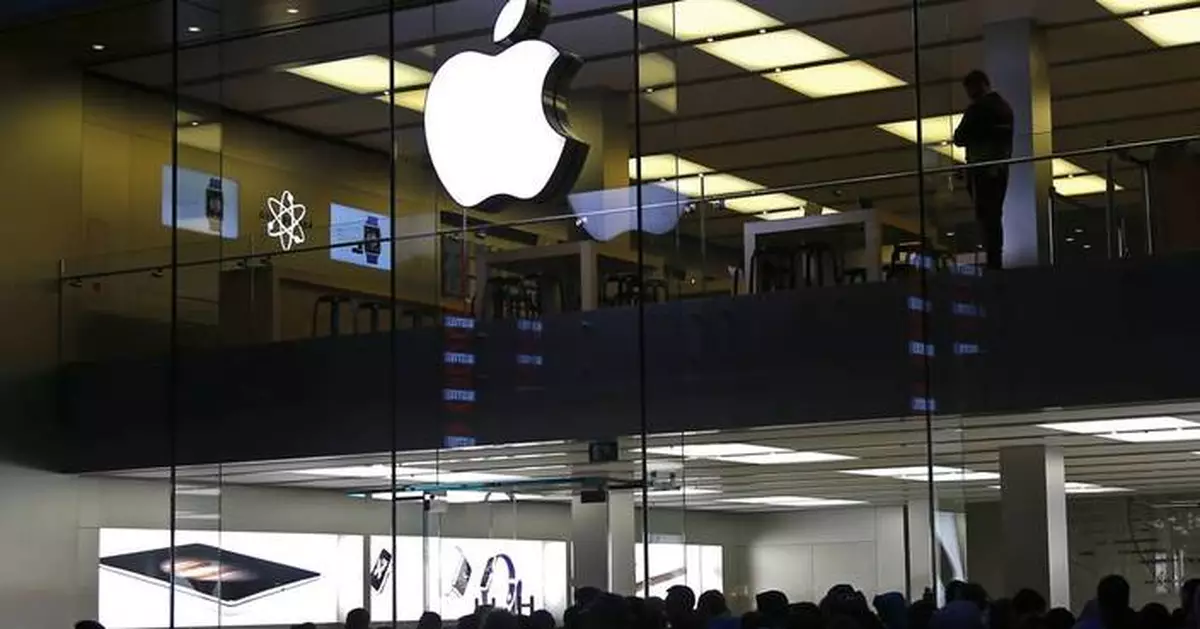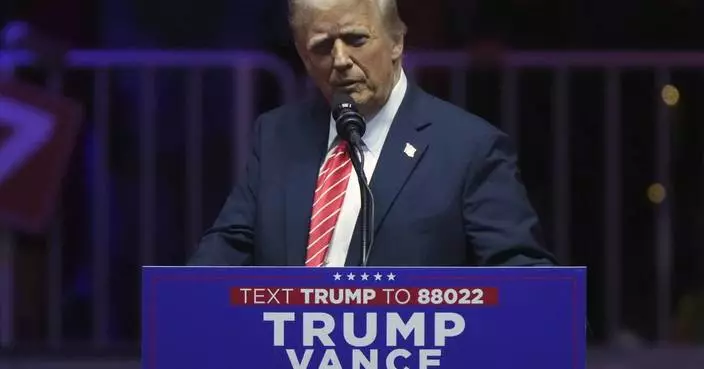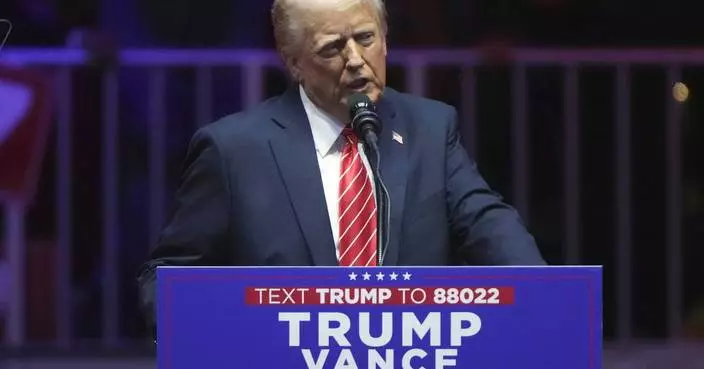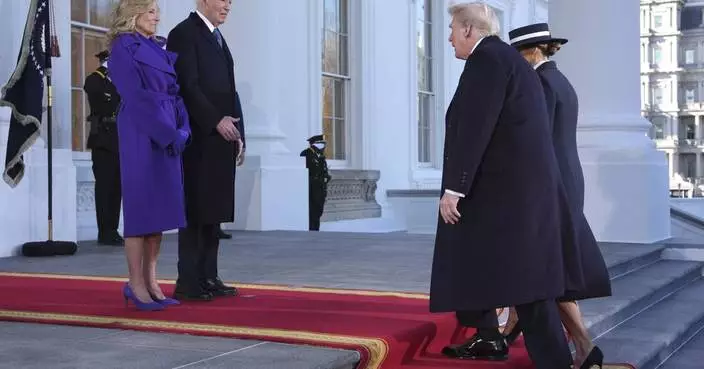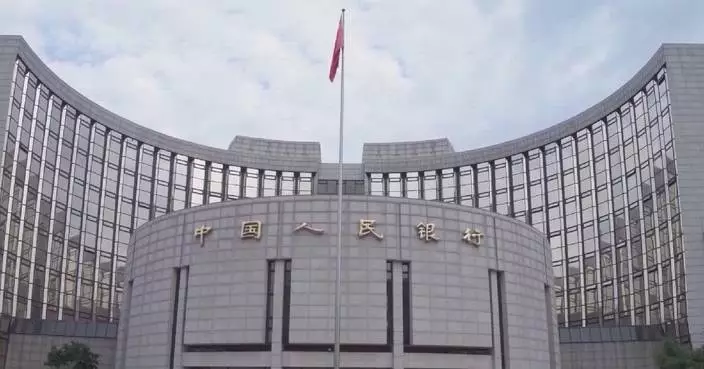BRUSSELS (AP) — Apple on Tuesday lost its last bid to avoid paying 13 billion euros ($14.34 billion) in back taxes to Ireland, in a finale to a dispute with the European Union that centered on sweetheart deals that Dublin was offering to attract multinational businesses with minimal taxes across the 27-nation bloc. The final decision by the EU’s top court was quickly hailed as a landmark victory over corporate greed.
“Today is a big win for European citizens and for tax justice,” said European antitrust Commissioner Margrethe Vestager, whose 8-year fight to impose the measure on the global tech behemoth brought her to tears when she finally heard she had won.
The ruling “confirms the European Commission’s 2016 decision: Ireland granted Apple unlawful aid which Ireland is required to recover," the European Court of Justice said in a press release summarizing its decision.
The case drew outrage from Apple when it was opened in 2016, with CEO Tim Cook calling it “total political crap.” Then-U.S. President Donald Trump slammed Vestager, who spearheaded the campaign to root out special tax deals and crack down on big U.S. tech companies, as the “tax lady” who “really hates the U.S.”
Vestager had accused Apple of striking an illegal tax deal with Irish authorities so that it could pay extremely low rates. The European Union’s General Court disagreed with that in its 2020 ruling, which has now been overturned.
It did not leave Apple much happier on Tuesday. "We are disappointed with today’s decision as previously the General Court reviewed the facts and categorically annulled this case,” Apple said in a statement. “There has never been a special deal," the company said.
Vestager said she was stunned by the last-gasp legal turnaround. “I had prepared for a stiff upper lip, facing a possible defeat. But, you know, it was a win that made me cry. Because it is very important to show European taxpayers that once in a while, tax justice can be done.”
Eight years ago, the ruling that found Ireland had granted a sweetheart deal that let Apple pay almost no taxes across the European bloc for 11 years dramatically escalated the fight over whether America’s biggest corporations are paying their fair share around the world.
The EU head office said that Ireland granted such lavish tax breaks to Apple that the company’s effective corporate tax rate on its European profits dropped from 1% in 2003 to a mere 0.005% in 2014. Apple has disputed such figures.
Vestager said that through the deals with the Irish government the company paid next to nothing in taxes while instead “Apple should have paid taxes worth 13 billion euros on all related profits in Ireland.”
“This means that the recovered taxes, which have been in an escrow account for quite some years in Ireland during the ongoing court proceedings, now must be released to the Irish State,” she said.
The government in Dublin said that “the Irish position has always been that Ireland does not give preferential tax treatment to any companies or taxpayers,” before adding that "Ireland will of course respect the findings of the Court regarding the tax due in this case."
Both Vestager and the Irish government noted that the country's corporate tax residence rules have since been changed so the provisions that allowed Dublin to offer Apple the deal no longer exist.
The ruling that has now been upheld was one of a number of aggressive moves by European officials to hold U.S. businesses, particularly big tech companies, accountable under the EU’s rules on taxation and fair competition.
The commission has also previously targeted Amazon, Starbucks and Fiat with tax rulings, which were later overturned on appeal.
The latest decision means corporations should still be on watch, said Varg Folkman, a policy analyst with European Policy Centre, a think tank.
“This was the big one," Folkman said. "It was the largest fine. By a long while. So the commission winning this is really saying that this is something that can happen to them as well.”
With one EU member offering unfair tax concessions to attract multinationals that others could not or would not match, it not only skewed multinational investments in the bloc but also gave global corporations massive sway to keep their taxes to a fraction of their revenue.
“Member states cannot continue the race to the bottom corporate tax policies that undermine European unity and social cohesion. Big tech companies like Apple should not be able to exploit their market power and avoid paying their fair share to society," said EU MEP Kira Peter-Hansen.
And Tuesday's ruling showed that authorities still have a bite.
“It shows taxpayers that there can be fairness," said Vestager. "And it has shown big companies that they are also not above the law when it comes to taxation.”
Kelvin Chan contributed to this report from London.
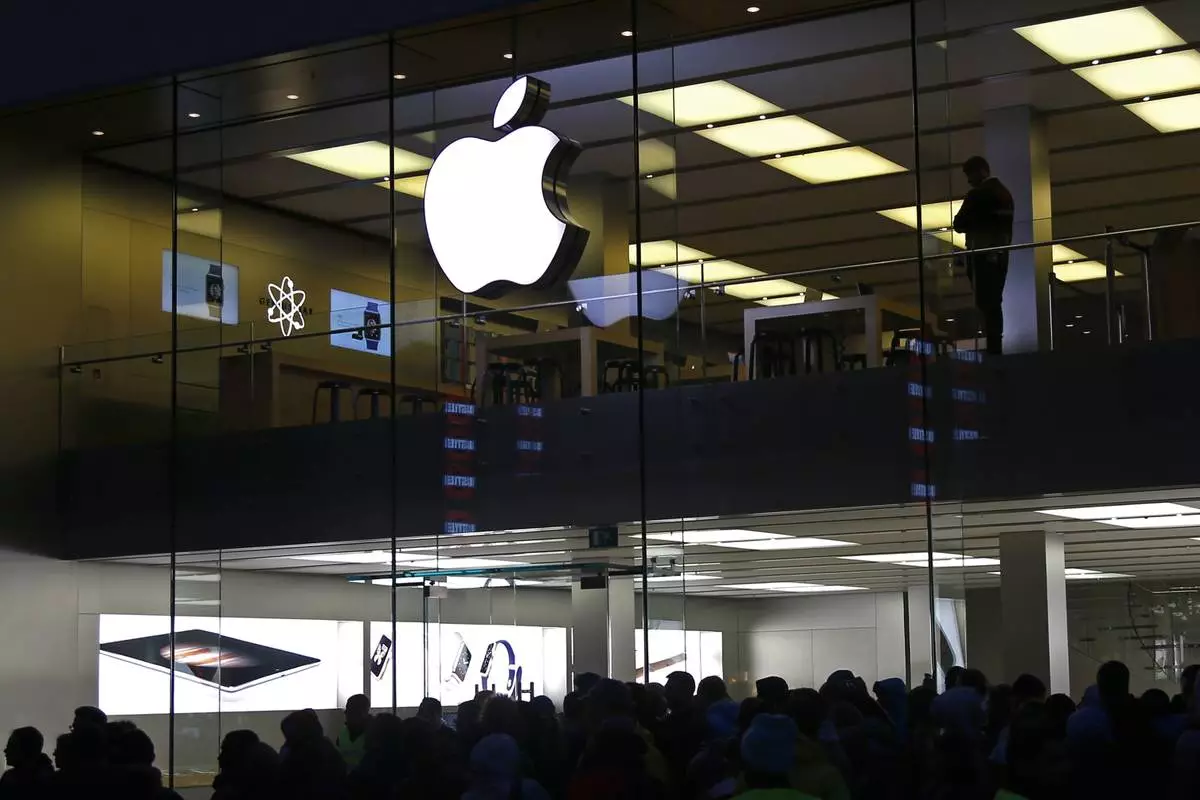
FILE - People wait in front of the Apple store in Munich, Germany, on Sept. 25, 2015. The European Union’s top court has rejected Apple’s final legal challenge against an order from the bloc’s executive commission to repay 13 billion euros in back taxes to Ireland, bringing an end to the long-running dispute (AP Photo/Matthias Schrader, File)
WASHINGTON (AP) — The price of bitcoin surged to over $109,000 early Monday, just hours ahead of President-elect Donald Trump’s inauguration, as a pumped up cryptocurrency industry bets he'll take action soon after returning to the White House.
Once a skeptic who said a few years ago that bitcoin “ seems like a scam,” Trump has embraced digital currencies with a convert’s zeal. He's launched a new cryptocurrency venture and vowed on the campaign trail to take steps early in his presidency to make the U.S. into the “crypto capital” of the world.
His promises including creating a U.S. crypto stockpile, enacting industry-friendly regulation and event appointing a crypto “czar” for his administration.
“You’re going to be very happy with me,” Trump told crypto-enthusiasts at a bitcoin conference last summer.
Bitcoin is the world’s most popular cryptocurrency and was created in 2009 as a kind of electronic cash uncontrolled by banks or governments. It and newer forms of cryptocurrencies have moved from the financial fringes to the mainstream in wild fits and starts.
The highly volatile nature of cryptocurrencies as well as their use by criminals, scammers and rogue nations, has attracted plenty of critics, who say the digital currencies have limited utility and often are just Ponzi schemes.
But crypto has so far defied naysayers and survived multiple prolonged price drops in its short lifespan. Wealthy players in the crypto industry, which felt unfairly targeted by the Biden administration, spent heavily to help Trump win November’s election. Bitcoin has surged in price since Trump's victory, topping $100,000 for the first time last month before briefly sliding down to about $90,000. On Friday, it rose about 5%. It jumped more than $9,000 early Monday, according to CoinDesk.
Two years ago, bitcoin was trading at about $20,000.
Trump’s picks for key cabinet and regulatory positions are stocked with crypto supporters, including his choice to lead the Treasury and Commerce departments and the head of the Securities and Exchange Commission.
Key industry players held a first ever "Crypto Ball” on Friday to celebrate the first “crypto president." The event was sold out, with tickets costing several thousand dollars.
Here’s a look at some detailed action Trump might take in the early days of his administration:
As a candidate Trump promised that he would create a special advisory council to provide guidance on creating “clear” and “straightforward” regulations on crypto within the first 100 days of his presidency.
Details about the council and its membership are still unclear, but after winning November’s election, Trump named tech executive and venture capitalist David Sacks to be the administration’s crypto “czar.” Trump also announced in late December that former North Carolina congressional candidate Bo Hines will be the executive director of the “Presidential Council of Advisers for Digital Assets.”
At last year’s bitcoin conference, Trump told crypto supporters that new regulations “will be written by people who love your industry, not hate your industry.” Trump's pick to lead the SEC, Paul Atkins, has been a strong advocate for cryptocurrencies.
Crypto investors and companies chafed as what they said was a hostile Biden administration that went overboard in unfair enforcement actions and accounting policies that have stifled innovation in the industry — particularly at the hands of outgoing SEC Chairman Gary Gensler.
“As far as general expectations from the Trump Administration, I think one of the best things to bet on is a tone change at the SEC,” said Peter Van Valkenburgh, the executive director of the advocacy group Coin Center.
Gensler, who is set to leave as Trump takes office, said in a recent interview with Bloomberg that he’s proud of his office’s actions to police the crypto industry, which he said is “rife with bad actors.”
Trump also promised that as president he’ll ensure the U.S. government stockpiles bitcoin, much like it already does with gold. At the bitcoin conference earlier this summer, Trump said it the U.S. government would keep, rather than auction off, the billions of dollars in bitcoin it has seized through law enforcement actions.
Crypto advocates have posted a draft executive order online that would establish a “Strategic Bitcoin Reserve” as a “permanent national asset” to be administered by the Treasury Department through its Exchange Stabilization Fund. The draft order calls for the Treasury Department to eventually hold at least $21 billion in bitcoin.
Republican Sen. Cynthia Lummis of Wyoming has proposed legislation mandating the U.S. government stockpile bitcoin, which advocates said would help diversify government holdings and hedge against financial risks. Critics say bitcoin’s volatility make it a poor choice as a reserve asset.
Creating such a stockpile would also be a “giant step in the direction of bitcoin becoming normalized, becoming legitimatized in the eyes of people who don’t yet see it as legitimate,” said Zack Shapiro, an attorney who is head of policy at the Bitcoin Policy Institute.
At the bitcoin conference earlier this year, Trump received loud cheers when he reiterated a promise to commute the life sentence of Ross Ulbricht, the convicted founder of the drug-selling website Silk Road that used crypto for payments.
Ulbricht’s case has energized some crypto advocates and Libertarian activists, who believe government investigators overreached in building their case against Silk Road.
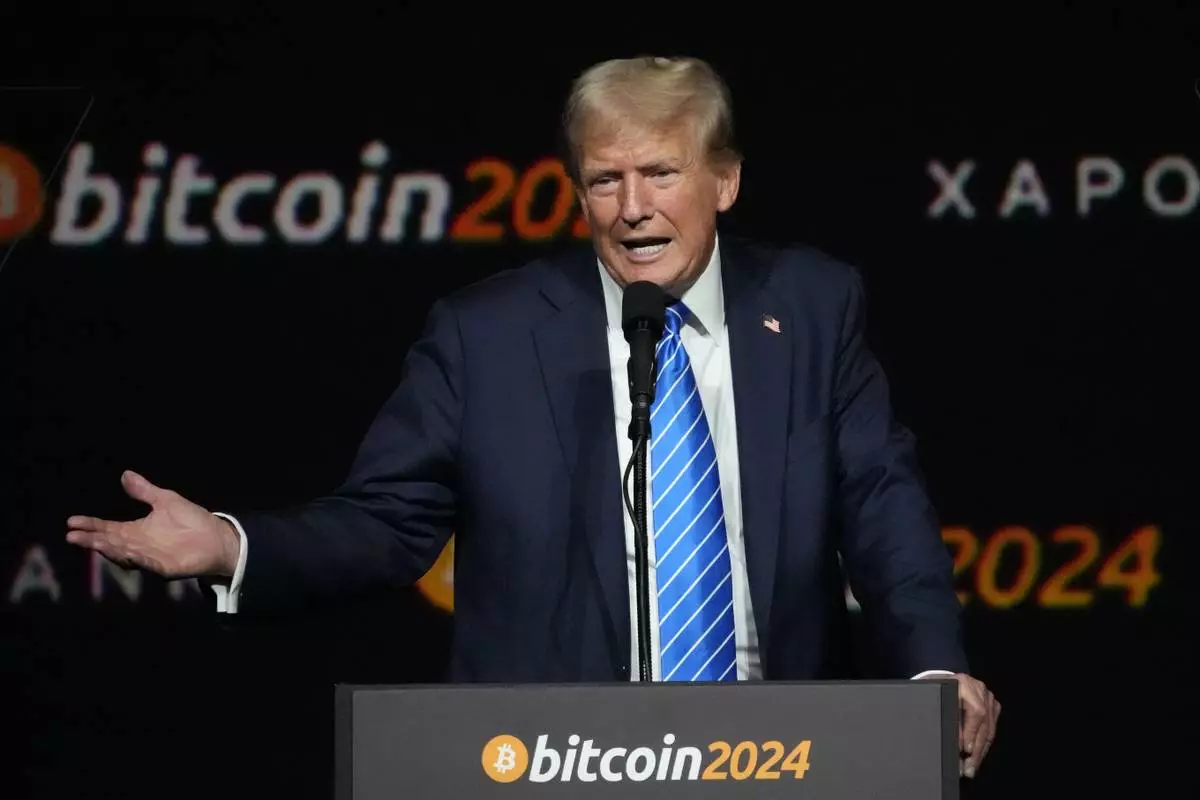
FILE - Donald Trump speaks at the Bitcoin 2024 Conference July 27, 2024, in Nashville, Tenn. (AP Photo/Mark Humphrey, File)



